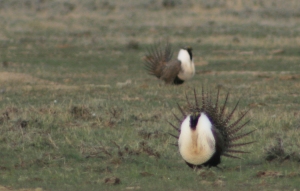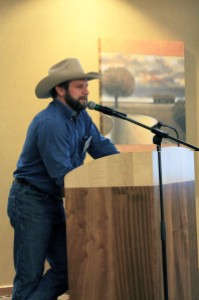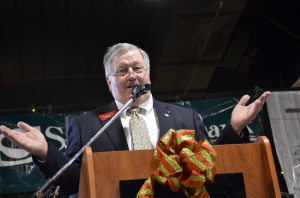Registration Opens for 2014 Young Ag Leadership Conference!
 Registration is now open for the eleventh annual Young Ag Leadership Conference (YALC)! This exciting, one-of-a-kind conference is set to take place October 3-5 at the Holiday Inn in Bozeman, MT. YALC is a collaborative effort between nine of Montana’s agricultural organizations, offering attendees a chance to discuss current ag issues, take part in various workshops, meet with industry leaders and network with fellow young people who live Montana agriculture.
Registration is now open for the eleventh annual Young Ag Leadership Conference (YALC)! This exciting, one-of-a-kind conference is set to take place October 3-5 at the Holiday Inn in Bozeman, MT. YALC is a collaborative effort between nine of Montana’s agricultural organizations, offering attendees a chance to discuss current ag issues, take part in various workshops, meet with industry leaders and network with fellow young people who live Montana agriculture.
Anyone aged 18-40 and interested or involved in agriculture is encouraged to attend. The conference is put together by a committee of representatives from each of the following: Montana Agri-Business Association, Montana Cattlemen’s Association, Montana 4-H Foundation, Montana FFA Foundation, Montana Farm Bureau Federation, Montana Farmers Union, Montana Grain Growers Association, Montana State University College of Agriculture, and the Montana Stockgrowers Association.
The weekend kicks off on Friday with never-before-offered industry tours! This optional excursion will depart the hotel at 1PM and return in time to join the rest of the incoming attendees for the social at 6 PM. Friday evening offers “Dinner and a Movie” to get participants ready for Saturday’s full schedule of workshops, discussion groups and networking opportunities.
During Saturday’s breakfast, Matt Rush will wake everyone up with his keynote, “There is a Snake in My Bumper!” Participants will then choose from an expanded slate of workshop topics including everything from using Unmanned Aerial Vehicles (UAVs) on your operation to water rights and what employers look for during the interviewing process. Back by popular demand, we are excited to have Dr. John Paterson of NCBA talk about opportunities available for young producers in today’s cattle market, as well as other leadership development and industry-important topics on our agenda. Saturday’s luncheon will feature an insightful and entertaining talk called “Estate Planning is Easy…If You Have a Time Machine” by Debra Conroy of Fairfield & Woods, P.C., which will be followed up with more workshops and the always well-liked discussion groups. This year’s topics highlight two important themes facing young ag producers today: Ag Issues at a Glance, a lively discussion highlighting the current issues affecting today’s agricultural industry; and Local Food Co-ops, buying local is all the rage, but where does conventional farming fit in and how can these two industries work together?
Saturday will wrap up with supper and a good old-fashioned barn dance but the event doesn’t conclude until we hear “The Impact of One” from Janice Person, Online Engagement Entrepreneur for Monsanto Company on Sunday morning.
The cost of registration is only $25 for the entire conference, with all meals provided. After the pre-registration date of September 26, fees increase to $35. To register, go to www.mfbf.org or contact Mariah Baumann Shammel at (406) 462-5639 or [email protected].



















